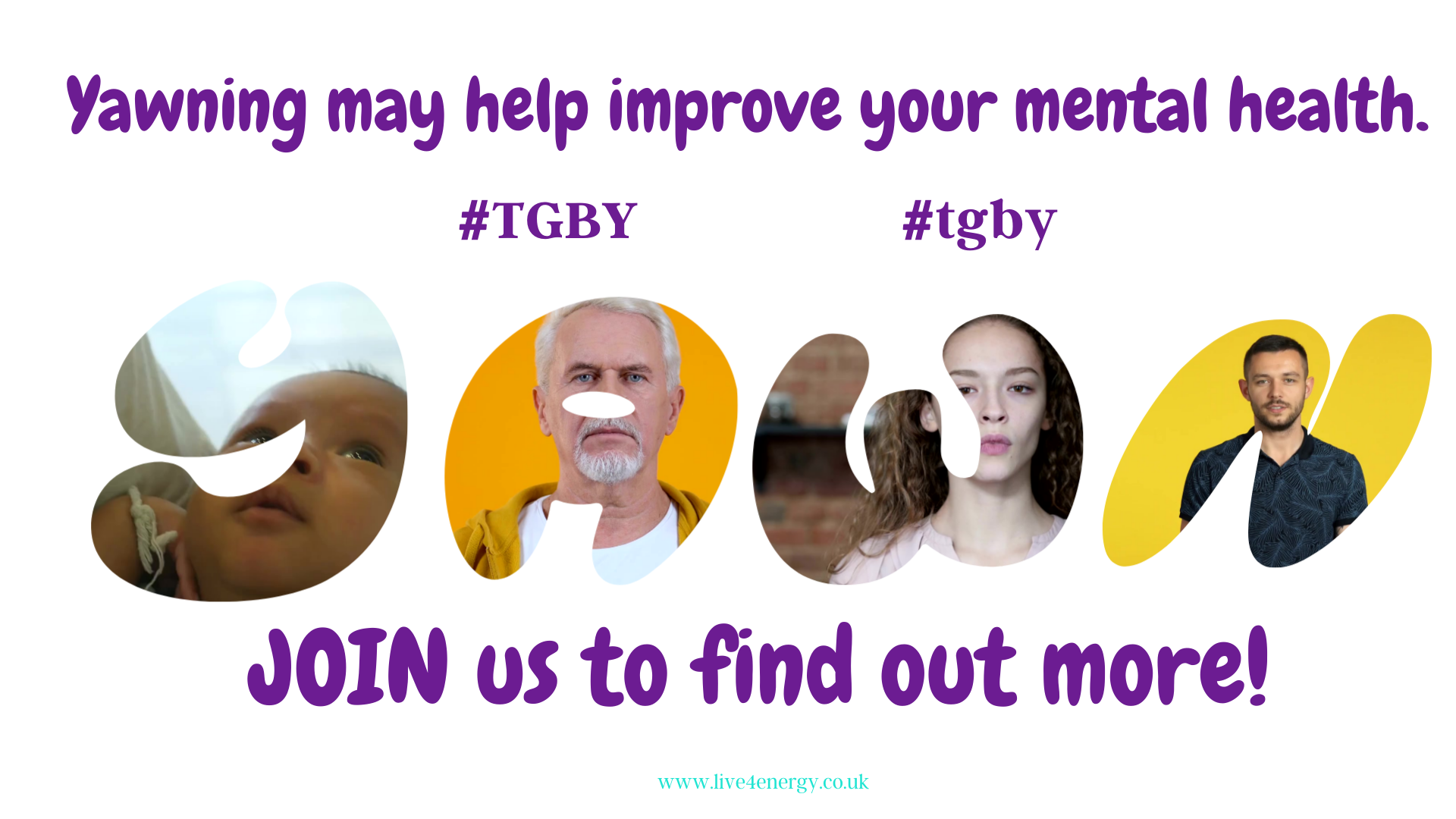THE GREAT BIG YAWN has now set up as a Social Enterprise and all future information will be found here….
I have a huge interest in Yawning and it is growing week by week as my clients yawn their way through our sessions.
Are they bored? Exhausted?
Why are so many of them yawning?
Why if they can’t complete their yawn do they continue until they do the longest and widest of yawns?
Also, once they’ve done the great BIG Yawns they say they feel fantastic; more relaxed than they have in weeks, months and in some cases years.
So why are they yawning so much and so BIG during our sessions?
Some clients, when I discuss it with them can’t actually remember when they last yawned! The majority of these clients are suffering from depression, high anxiety, tinnitus, migraines, and chronic pain.
Yawning appears to give my clients clarity, focus and solutions to previously hidden away memories.
It relieves many of my clients from physical pain that has been stuck in their body, again sometimes, something they’ve had for years.
With this in mind it felt apt to investigate the YAWN and this is what I found.

Studies suggest that yawning helps cool the brain and improves alertness and mental efficiency.
Yawning helps with deep relaxation and reduces stress.
Studies have found that yawning increases when people are engaged in difficult mental tasks.
Yawning helps contract the facial muscles during a yawn which forces blood through cerebral blood vessels to the brain, which may function to increase alertness.
Relieves Ear Discomfort
Relieves ear discomfort: Ear pain, discomfort and hearing problems caused by change in altitudes in airplanes and even elevators can be relieved by yawning.
In fact, researchers say yawning is a defense reflex of the ear during rapid altitude changes or other conditions. Yawning is helpful in equalizing air pressure in your ears.
Increases Oxygen Supply To The Brain
Increases oxygen circulation in the brain: A yawn brings more oxygen into the body.
Every time you yawn, it brings more oxygen into your lungs that helps in getting rid of carbon dioxide build up or ‘bad air’ in the lungs. This in turn results in increased oxygen circulation in the brain
Remarkably little interest has been paid to yawning in research, even though it is an everyday phenomenon (** find Sharat Gupta / Shallu Mittal/ Robert R Provine / Oliver Walusinski for research papers on yawning).
In 1986, Provine, the pioneer of yawning research wrote that “Yawning may have the dubious distinction of being the least understood, common human behavior.” Today, more than 20 years later, this may well still be the scenario as we are yet to find a definitive solution to this age old conundrum.
Yawning research is intriguing because it is not a learnt behaviour, as even a 20 week old human fetus has been seen to yawn.
Suggesting that it is merely an act of boredom and drowsiness is unjustified and that it may have a definitive underlying physiological importance feels like it really needs to be meticulously explored.
In the meantime, as we endeavor to find funds to research such a study, would you help us bring The Great Big Yawn to your loved ones attention.
Helping people feel safe enough to complete their yawn could actually be helping them relieve symptoms of depression, anxiety, stress, tinnitus, chronic pain, internal chatter and so much more.
And please do monitor your yawns and tell us if it is making a difference to your every day lives. By switching the paradigm of yawning from negative to positive does it have an effect on how you feel?
In person events coming soon with The Great Big Yawn Mental Health Fest. What on earth could we be sharing with you?
